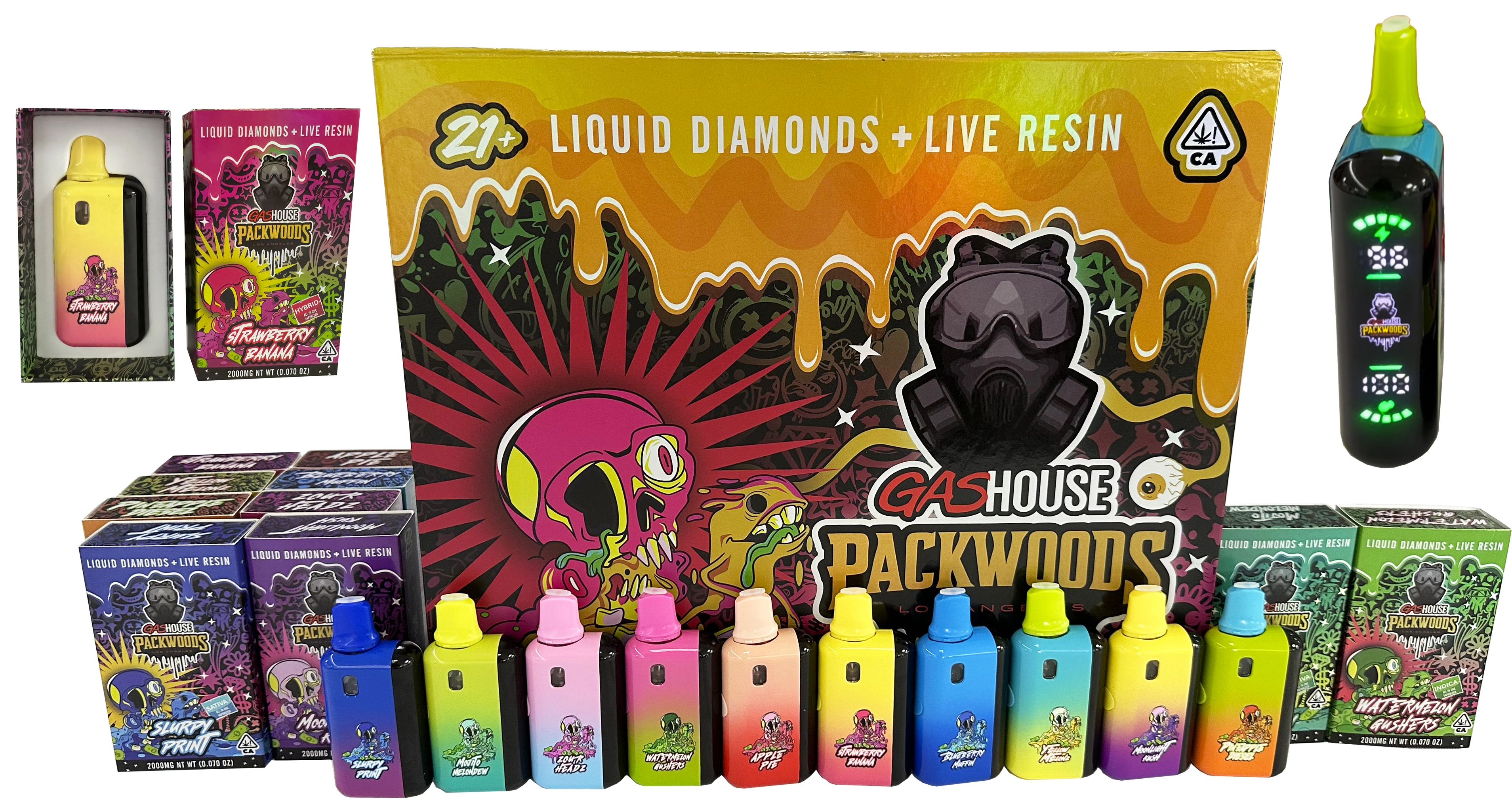Can Using THC Vapes Lead to Depression in Young Adults

You might have noticed that THC vapes are becoming increasingly popular among young adults. In fact, cannabis vaping among college students jumped from 5% in 2017 to 14% in 2019. Non-college young adults also saw a rise, going from 8% to 17% in the same period. With these numbers climbing, it's crucial to consider how using THC vapes could impact mental health, particularly regarding depression.
Key Takeaways
THC vapes are popular with young adults, but they can cause more depression and anxiety.
Studies show that many THC vapers have mood swings and more anxiety, which can hurt mental health.
Knowing why you use THC vapes can help you make better choices for your mental health.
Try healthier ways to cope, like exercising or meditating, instead of using THC vapes for stress.
Learn about the risks of THC vapes and get help if you see bad changes in your mood or mental health.
Understanding THC Vapes
What are THC Vapes?
THC vapes are devices that allow you to inhale vaporized cannabis oil containing tetrahydrocannabinol (THC), the psychoactive compound in marijuana. Unlike traditional smoking, vaping heats the oil to a temperature that releases the active ingredients without burning the plant material. This method can produce a smoother experience and often comes in various flavors, making it appealing to many young adults.
You might find THC vapes in different forms, such as:
Cartridges: Pre-filled containers that attach to a battery.
Disposable pens: Ready-to-use devices that you can throw away after use.
Dab pens: Used for consuming concentrated cannabis extracts.
How are THC Vapes Used?
Using THC vapes is relatively straightforward. First, you need to charge the device if it’s rechargeable. Then, you simply inhale through the mouthpiece. Many users appreciate the convenience of vaping, as it allows for discreet use. You can enjoy it at home or on the go without the strong odor associated with smoking.
However, it’s essential to be mindful of how often you use THC vapes. Some people may find themselves reaching for their vape more frequently than intended. This can lead to increased tolerance and potential dependence.
If you’re considering using THC vapes, think about your reasons for doing so. Are you looking for relaxation, social enjoyment, or something else? Understanding your motivations can help you make informed choices about your usage.
Effects of THC on Mental Health

Physiological Effects of THC
When you use THC vapes, your body reacts in several ways. THC interacts with your endocannabinoid system, which plays a crucial role in regulating various bodily functions. Here are some physiological effects you might experience:
Increased heart rate: You may notice your heart racing after using THC vapes. This can be alarming, especially if you're not used to it.
Dry mouth: Many users report a dry mouth, often referred to as "cottonmouth." Staying hydrated can help alleviate this discomfort.
Altered sensory perception: THC can enhance your senses, making colors appear brighter or sounds more intense. While this can be enjoyable, it may also lead to feelings of anxiety in some users.
Psychological Effects of THC
The psychological effects of THC can be more complex. While some people enjoy feelings of euphoria and relaxation, others may experience negative emotions. Here are some psychological effects to consider:
Mood swings: You might feel happy one moment and anxious the next. This unpredictability can be unsettling.
Increased anxiety or paranoia: For some, THC can trigger feelings of anxiety or paranoia. If you’re prone to these feelings, using THC vapes might not be the best choice for you.
Impaired memory and concentration: THC can affect your short-term memory and ability to focus. This can impact your daily activities, especially if you’re studying or working.
Understanding these effects is essential. If you notice negative changes in your mood or mental state after using THC vapes, it might be time to reconsider your usage. Always listen to your body and mind.
Research Linking THC Vapes to Depression

Key Studies and Findings
Research shows a concerning link between THC vapes and depression. Here are some key findings from various studies:
Approximately 70% of THC-only vapers reported experiencing anxiety symptoms in the past week.
Over half of THC-only vapers experienced symptoms of depression, compared to just 25% of non-vapers.
More than 50% of all vaping groups reported having suicidal thoughts in the past year, while only one-third of non-users reported the same.
About half of THC-only vapers started using vapes to relieve anxiety symptoms.
Nearly half of THC-only vapers currently use THC to feel less depressed.
These statistics highlight a troubling trend. Many young adults turn to THC vapes seeking relief from anxiety or depression, but the very substance they use may contribute to worsening mental health.
Statistics on THC Use and Depression
The correlation between cannabis use and depression is significant. Research indicates that frequent marijuana users have much higher rates of depression compared to non-users. A study involving over 68,000 adolescents found that cannabis users had 2 to 4 times higher odds of experiencing depression and other negative psychosocial events compared to their non-using peers.
Interestingly, the association appears to be stronger among men during adolescence and emerging adulthood, while women show a stronger link during midlife. This suggests that the impact of THC vapes on mental health may vary based on age and gender.
As you consider your own use of THC vapes, keep these findings in mind. Understanding the potential risks can help you make informed choices about your mental health and well-being.
Demographics Most Affected by THC Vapes
Age and Gender Considerations
When it comes to THC vapes, age and gender play significant roles in how they affect mental health. Young adults, particularly those between the ages of 18 and 24, are the most frequent users. This age group often seeks out THC vapes for social experiences or stress relief. However, studies show that this demographic is also more vulnerable to the negative effects of THC, including depression and anxiety.
Gender differences also emerge in THC use. Research indicates that young men tend to use THC vapes more than young women. Yet, women often report higher levels of anxiety and depression linked to their usage. This suggests that while men may use THC vapes more frequently, women might experience more severe mental health consequences.
Socioeconomic Factors
Socioeconomic status can influence your likelihood of using THC vapes and how they affect your mental health. Young adults from lower-income backgrounds may turn to THC vapes as a coping mechanism for stressors like financial instability or lack of access to mental health resources. Unfortunately, this can create a cycle where the very substance meant to provide relief contributes to worsening mental health.
On the other hand, those from higher socioeconomic backgrounds might use THC vapes for recreational purposes. While they may not face the same financial pressures, they can still experience mental health issues. The pressure to succeed or maintain a certain lifestyle can lead to anxiety and depression, making THC vapes an appealing escape.
Understanding these demographics helps you recognize the broader implications of THC vape use. Whether you’re a young adult or know someone who is, being aware of these factors can guide you in making informed choices about THC use and mental health.
Using THC vapes may lead to increased risks of depression in young adults. It’s essential to be aware of how these products can affect your mental health. Instead of reaching for a vape to cope with stress or anxiety, consider developing better coping skills. Prioritizing positive behaviors can help you manage tension without relying on vaping.
Effective communication campaigns can also educate young people about the risks of e-cigarettes. Remember, while THC vapes might seem like a quick fix, they can worsen mental health issues and lead to addiction. Stay informed and make choices that support your well-being.
FAQ
What are the signs of depression linked to THC vape use?
You might notice mood swings, increased anxiety, or feelings of hopelessness. If you find yourself withdrawing from friends or losing interest in activities you once enjoyed, these could be signs of depression.
Can THC vapes help with anxiety?
While some people use THC vapes to relieve anxiety, research shows they can actually worsen anxiety symptoms for many. It's essential to consider healthier coping strategies instead.
How can I reduce my THC vape use?
Start by setting limits on how often you vape. You can also find alternative stress-relief methods, like exercise or meditation. Talking to a friend or a professional can help too.
Are there safer alternatives to THC vapes?
Yes! Consider options like herbal teas, essential oils, or mindfulness practices. These can provide relaxation without the risks associated with vaping.
Should I talk to someone about my THC use?
Absolutely! If you're concerned about your THC use or its effects on your mental health, talking to a trusted friend or a mental health professional can provide support and guidance.
